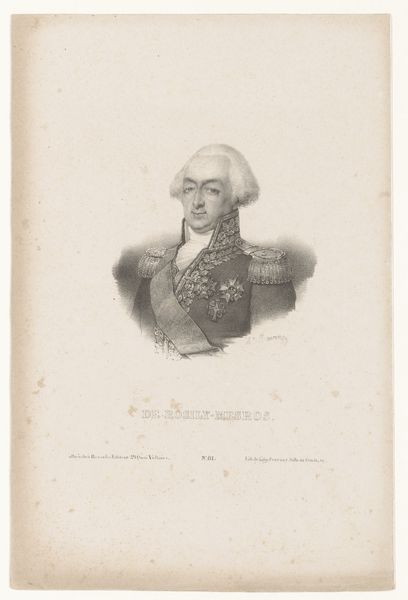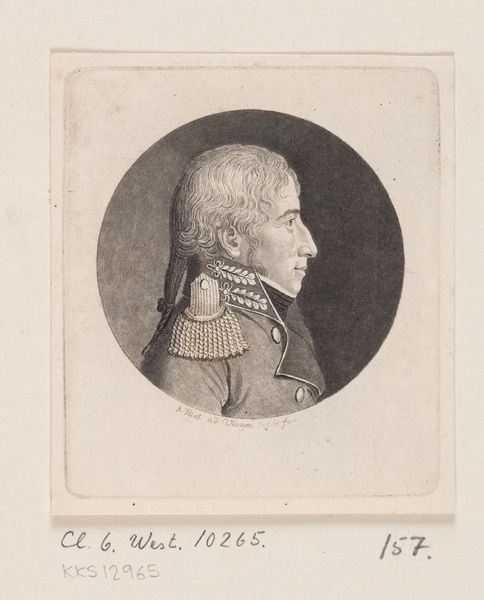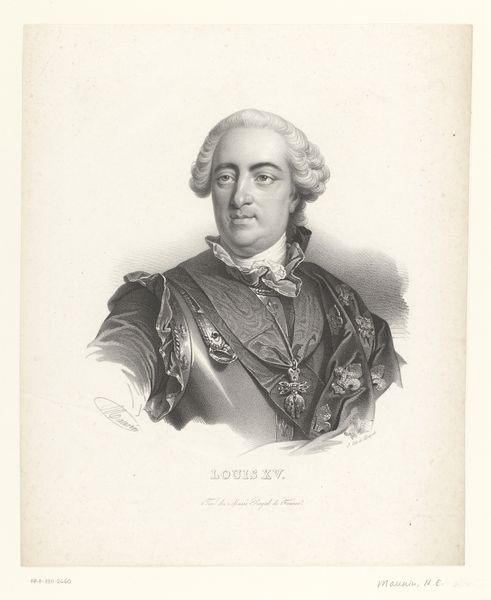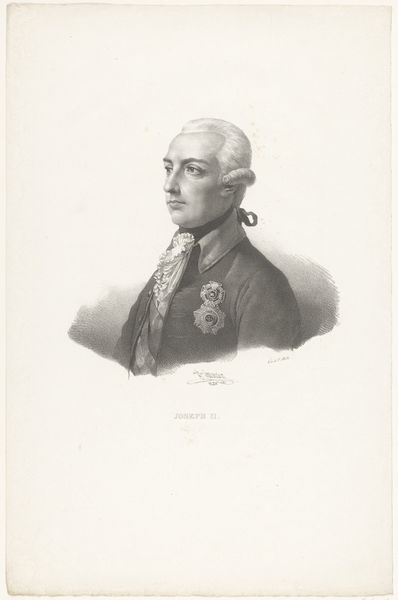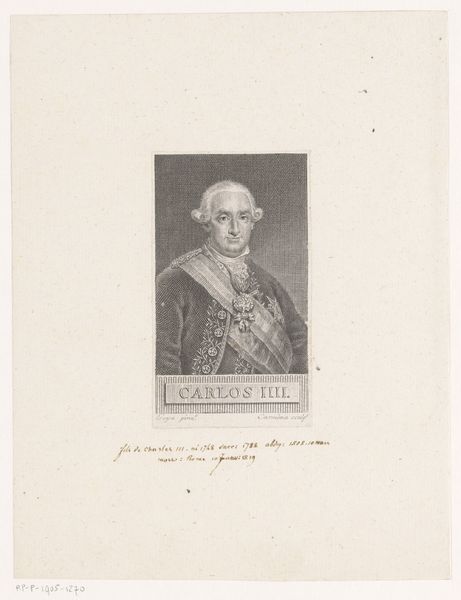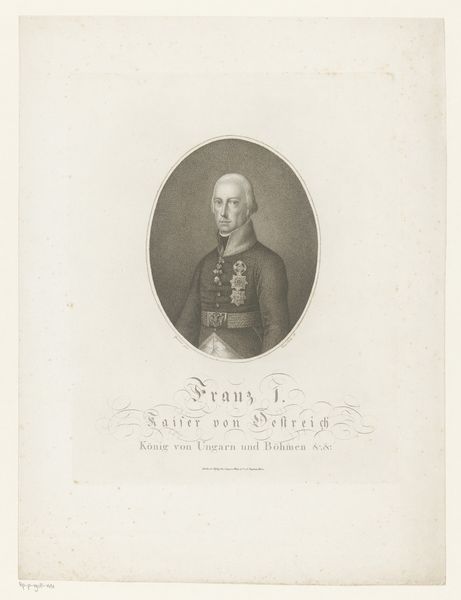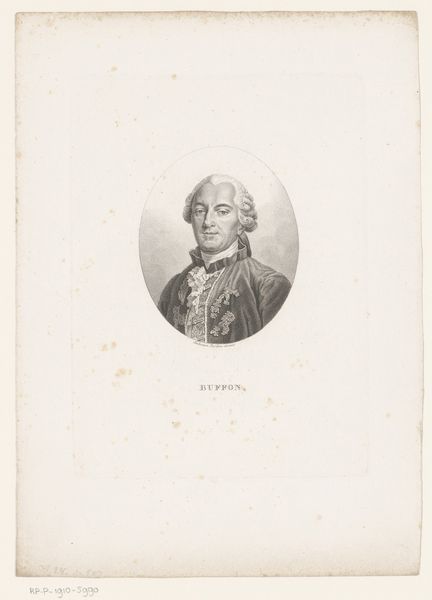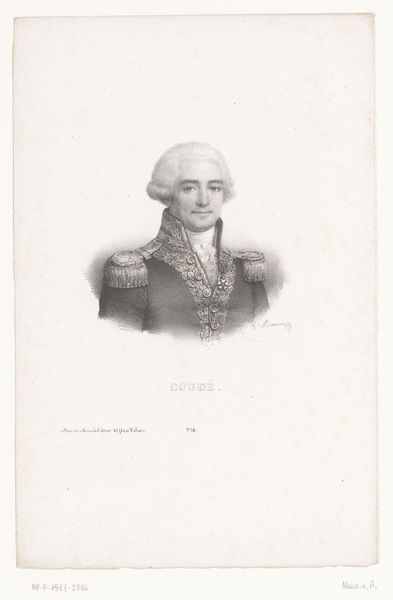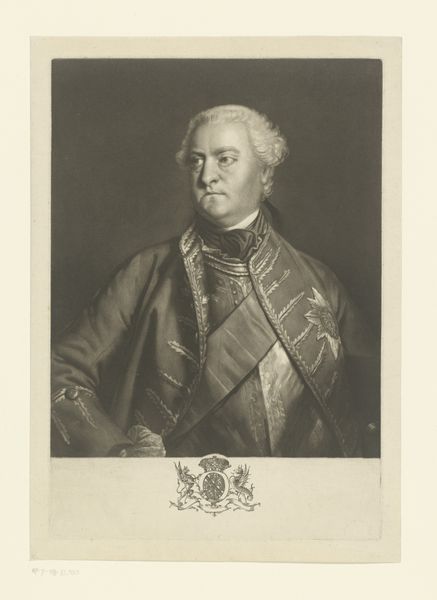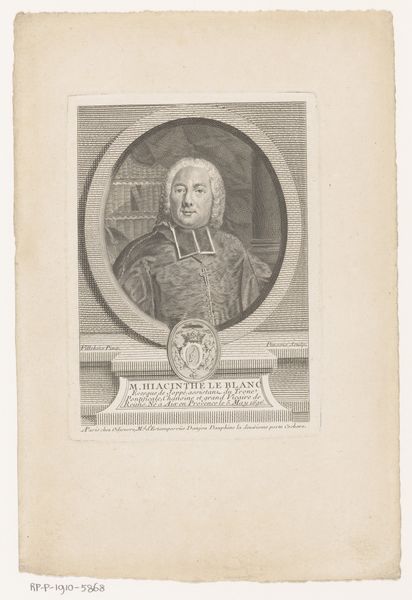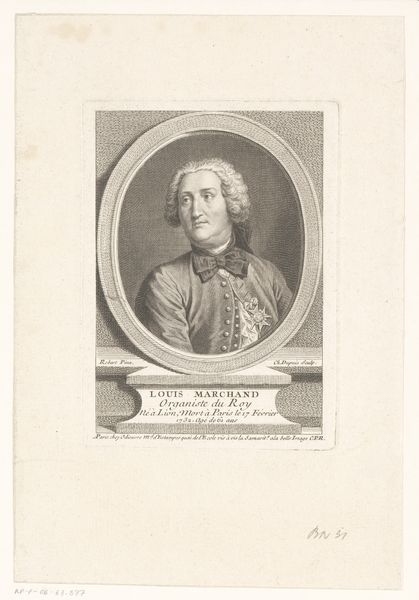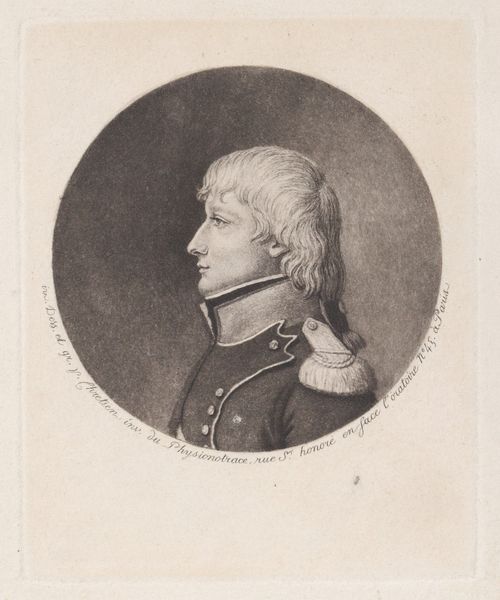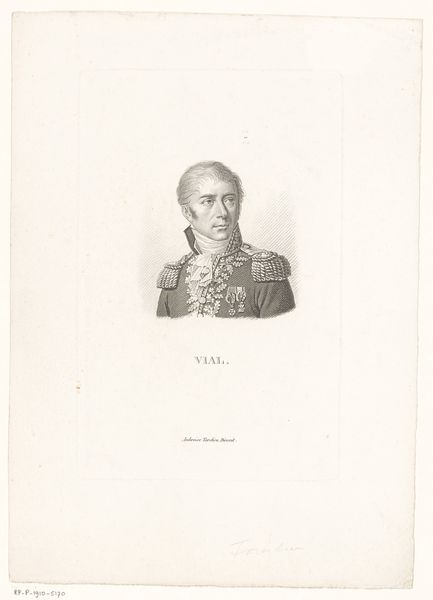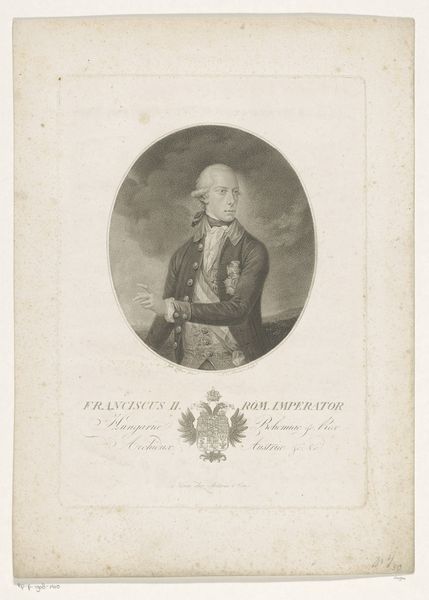
paper, engraving
#
portrait
#
neoclacissism
#
figuration
#
paper
#
form
#
line
#
history-painting
#
academic-art
#
engraving
#
realism
Dimensions: height 238 mm, width 187 mm
Copyright: Rijks Museum: Open Domain
This portrait of Louis XVIII was made by Bocourt I in the early 19th century, using a technique called etching. Etching involves coating a metal plate with wax, scratching an image into the wax, and then dipping the plate in acid. The acid bites away the exposed metal, creating lines that will hold ink. This laborious process requires skill and precision. The density of marks, and the fineness with which the face is rendered shows that someone invested time into the creation of the printing plate. Consider the social context, the printmaking process allowed for images of the monarch to be reproduced and distributed widely, contributing to the construction of his public image. Etchings like this served as a form of political communication, reinforcing the power and authority of the monarchy. So, next time you see a print, remember that it's not just an image, it's also a product of skilled labor, and a reflection of the social and political forces at play.
Comments
No comments
Be the first to comment and join the conversation on the ultimate creative platform.
